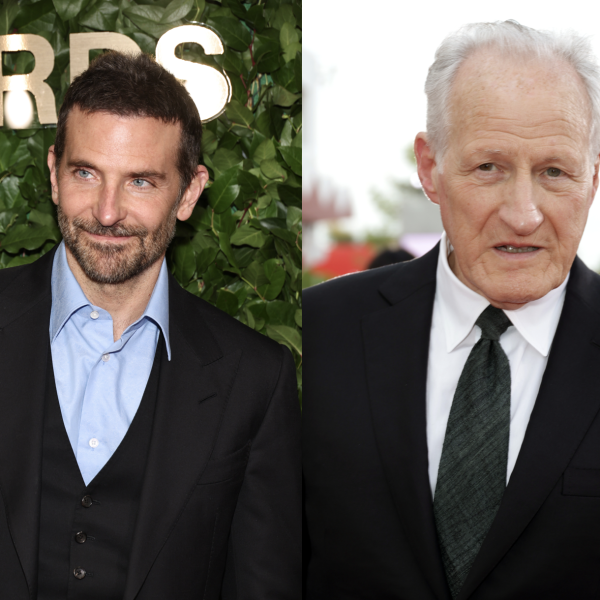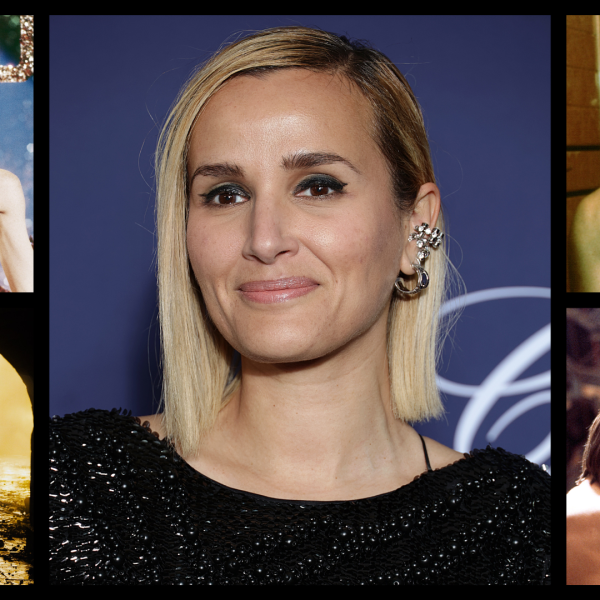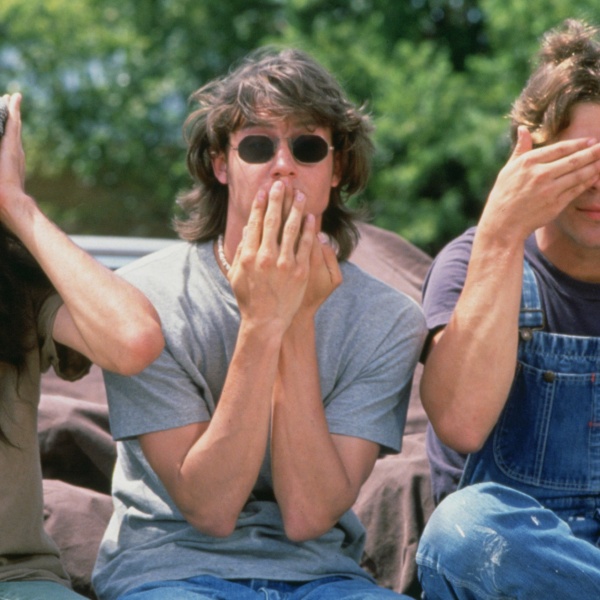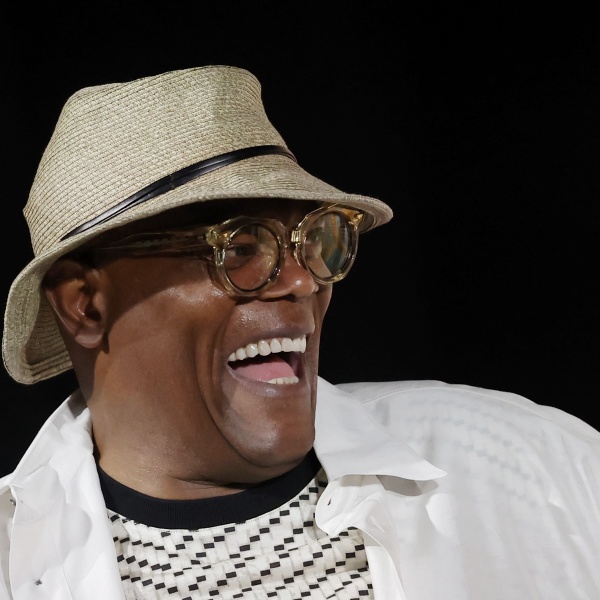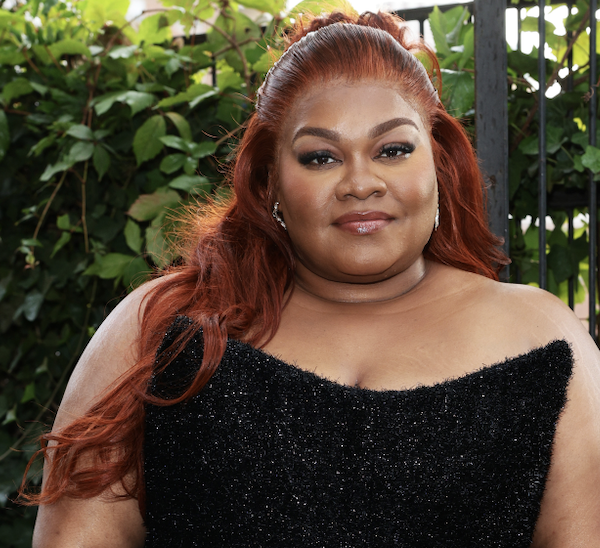When Susan Seidelman first decided she wanted to become a filmmaker, she didn’t have any guidebooks to help the Philadelphia native on her chosen journey. With her new autobiography, “Desperately Seeking Something,” she hopes to change that.
“When I would read books about what it was like directing, it was John Ford or John Houston or Alfred Hitchcock, these guys writing from a very male perspective,” she told IndieWire during a recent interview. “I had to kind of figure stuff out for myself, so I thought it might be nice to write a memoir about what my experience was like, but also with advice for the next generation, the next few generations, hopefully.”
Seidelman’s book, out this week, charts her wild — and incredibly varied — ride through indie filmmaking (like taking her debut film “Smithereens” all the way to Cannes), keen casting (she gave Madonna her first big role in “Desperately Seeking Susan”), the Hollywood world (including constant concerns about being thrown into movie jail), directing something as seminal as the “Sex and the City” pilot, and what’s next. The result is a funny, insightful, and incredibly sage book that works both as a biography and a road map. Even Seidelman is surprised by it.
“I’ve written scripts and worked on that side of things, but I’ve never written a book before,” Seidelman said. “It was during the pandemic [that I started working on] writing this thing that was just in my own head. I didn’t really think of the reality that other people are going to read it. That my mom is going to read that is now hitting me! It’s kind of cool, but it’s kind of strange.”
Ahead, Seidelman discusses her book with IndieWire, including the boundary-breaking inclusion of her first film in the Cannes competition, her sharp understanding of how Hollywood treats its female filmmakers, the recent reemergence (and appreciation) of her early films, the legacy of “Sex and the City,” and how things have changed (and stayed the same) in the industry.
The following interview has been edited and condensed for clarity.
IndieWire: To say you made “Smithereens” in a scrappy fashion hardly covers it. You were stealing shots, you weren’t getting permits. We’re seeing less of that in traditional moviemaking these days, but there seems to be a rise in that spirit on other platforms. Are you plugged into TikTok creators or the like?
Susan Seidelman: I’m not as plugged in as I used to be, which I hate to think is just in part a sign of my age, but probably is a little bit. But I do find myself fascinated by TikTok and Instagram. I do find that is a cheap and funky way to express yourself and get your vision. It’s a little bit like what Wren was doing in “Smithereens”: “Take a look at me. This is how I see the world.” I find that phenomenon really kind of fascinating.
There’s certain filmmakers that I like. I was really happy to see that Sean Baker won the Palme d’Or. I’ve been a fan of his work. He’s one of the more interesting people that I’ve been paying attention to.
Even just watching the Oscars this year, I was sort of blown away by the number of women who were finally getting acknowledged. One of the best films I’ve seen all year was “Anatomy of a Fall.” Just in terms of brilliant performances, brilliant writing, brilliant directing, the whole thing. All that stuff is very heartening.
In terms of the kind of scrappy, funky filmmakers that are doing interesting stuff today, my problem is, I don’t know how to track it. I don’t know where to find some of that stuff. In the past, if you made an indie film that broke through, like with “Smithereens” or Jim Jarmusch’s first film, or Spike Lee’s, you knew to go to the Waverly movie theater or to whichever arthouse theater is around, and you could see it. With the way things operate these days, I’m finding it harder to just navigate.

When “Smithereens” went to Cannes, it was the first indie-budget American film in competition. These days, the competition is often home to major Hollywood productions. What do you think is the legacy of “Smithereens” and its scrappiness in the shadow of these giant films?
It was weird, when I was in Cannes, which was 1982, that’s how I felt like — when I say scrappy, I mean we all looked scrappy. We all were dressed a little scrappy. The film was taped together. It was made in dribs and drabs, and there it was.
It was one of three American films in competition. The other two, one was called “Missing” by a well-known international director, Costa Gavras, starring Jack Lemmon and Sissy Spacek. The other one was “Shoot the Moon” by Alan Parker starring Diane Keaton. And there we were. But what was interesting is that, sometimes, that helps you to stand out a little bit more. To me, that’s always wonderful when those little films, those little surprise films, come along. Just the fact that they’re so different than the Hollywood stuff or the big budget stuff gives them attention.
From such an early time in your career, you were cognizant of the problems that can befall female filmmakers if their movie doesn’t make enough money or isn’t critically well-received. Now that you have a little more distance, how are you feeling about the current place for female filmmakers and their ability to continue to rise up in the industry?
Kind of not that different! Sort of the same, except for TV. I do think in the feature film business, which is different than streaming, it functions very differently. The statistics are maybe slightly better, but not that much better. And unfortunately, the studios are making fewer and fewer films. The indie films that are being made are having a harder time fighting for competition against viewers that are watching Netflix or the other streamers.
I don’t think in the feature business, it has improved, maybe a little bit. In TV, I think it’s changed, in terms of opportunities for women to direct TV, it’s very different. It’s not at all surprising these days to see a woman not just directing an episode of a TV show, but [you could be] watching a limited series and seeing that the woman directed all six episodes, and to me, that’s fantastic. That has been a game-changer. On the other side, not so much.

When “Making Mr. Right” wasn’t a box office hit, you knew it that first weekend, and you knew what it would mean for your career. In many ways, that hasn’t changed much. Before the pandemic, if you weren’t making $100 million the first weekend, it’s over for you. Do you pay attention to box office news anymore?
Not since the pandemic. Everything has changed, but up until the pandemic … it really boils down to Friday night box office. [The studios] look, and if the numbers aren’t what they want them to be, the studios would just start pulling back on the advertising budget. And then it is a self-fulfilling prophecy because, if the studio isn’t going to pay for advertising, the exhibitors are saying, “Why am I going to keep this movie for an extra week? Let me bring in the next one that has a bigger advertising budget.”
I don’t know if that’s changed that much. Now, maybe the fact that so many big feature films are coming out simultaneously, or almost simultaneously on streaming or pay-per-view, and the theaters, it’s a little different. The studios are not so up front about what the box office really is. It’s harder to know what’s really going on.
That was a revelation, because with my first studio movie, “Desperately Seeking Susan,” it grew. I think they released it initially on only maybe 300 to 400 screens, which was a small studio release, but it did really well, so then they expanded it. I assumed on some level that that’s the way things work, but not always.
“Desperately Seeking Susan” was the first film of yours that I watched, and I definitely watched it too young. It was on Comedy Central all the time, and even now, it still holds up.
It’s been kind of gratifying, because when you make a film, you’re never saying to yourself, “Oh, I hope this passes the test of time.” I was never thinking that way, but it’s been interesting over the last decade to be invited to some screenings or a Q&A or whatever, and to see young people in the audience who I know were not born when the movie was made, and seeing them relate to it. They’re not relating to it exclusively because of Madonna, they’re relating, I think, to that story of somebody who wants to be somebody different than who she is, who wants to lead some more authentic kind of life. I think women may relate to it more, but I think people in general feel that there’s somebody else inside of them that they want to get out.

In the book, you also mention “Making Mr. Right” finding its audience later. Just last year, Kino Lorber put it out on Blu-ray, and now people are finding it, maybe for the first time.
I really enjoyed working with John Malkovich and Ann Magnuson and Laurie Metcalf, who I think is one of the funniest people on earth, and Susan Berman, again. I had such a good time making it, and then, of course, you’re disappointed when it doesn’t do what you hope it’ll do at the box office. So I tucked it away, and when I had interviews or conversations, people would bring up some of the other things I’ve done, but [not that film], maybe it was because they hadn’t seen that film, they never had a chance to see it because it wasn’t readily available for a while.
It has been rediscovered, and when I went to a screening at the Metrograph a few months ago and saw it up on a big screen on a 35mm print, which was kind of cool. The audience really liked it. There was so much laughter. I was kind of surprised, because I always had a mixed relationship with that film. I think, in part because of the resurgence in interest in AI and in part because women are now allowed to be funkier and bolder and more sexual in their humor, [people like it now].
I think some of the humor that was interpreted as being male-hating at the time, by the male critics that were reviewing it, now is looked at very differently. That was the biggest common criticism from a lot of the male critics … [that] it had this male-hating theme, and I didn’t intend that.
In the book, you write that as you were gearing up to make “Smithereens,” you were driven by the idea that there “needed to be more guy roles for women.” Over the past few years, we’ve been inundated with the “badass female character,” which feels so limited. What do you think are “guy roles for women” these days?
I didn’t mean it in the badass way. Sometimes, those “badass” roles for men are equally boring to me. It was really in the sense that [I wanted to see] complicated women, women that aren’t into the “good girl, bad girl” category, that aren’t necessarily “nice,” but you’re compelled, or at least interested, to watch what their journey is going to be.
The kind of characters that Jack Nicholson used to play in the early ‘70s, or Dustin Hoffman in “The Graduate,” or with Ratso Rizzo, one of my favorite screen characters. Those were the kinds of characters that I saw reflected when I finally got to see European films, especially in French and in Italian films. Those characters just were so much more complicated and couldn’t be categorized so easily.
Do you feel like you’re seeing more of that these days, or less of it?
It’s hard to know, because I don’t live in New York anymore, and as you know, a lot of movie theaters have closed down, a lot of art movie theaters around where I am. I’m not as on top of things as I used to be when I lived in New York. Streaming has taken over, but I do think that some of the characters I’ve seen on some of the series that I streamed during the pandemic [show more of those roles], like “The Queen’s Gambit,” fascinating characters, complicated characters. “My Brilliant Friend,” which I also love; complicated, interesting characters.
What other movies and shows are you watching for fun? What are you guys putting on at night?

I’ve gotten into documentaries because there’s so many of them, and maybe it’s also because I’ve been writing a memoir. I’ve been reading more memoirs. I’m fascinated by real people’s lives. I’ve been watching a ton of music documentaries. I tend to watch what I can find on Netflix, some are good, some less. And thank god for the Criterion Channel, right? That’s the best thing about the pandemic … that I think finally the Criterion Channel had their moment, or are having their moment still.
You mentioned some regrets, like not making “Big.” When you were writing the book, were there other projects that came to mind that you felt that way about?
There have been scripts that have come my way that didn’t happen for me that I think I would’ve had fun with. I remember I was sent this script for “Romy and Michele’s High School Reunion”; that would’ve been fun.
But usually a lot of the things I’ve done, I sort of generated in some way, or I found the book, or I found material. There were times that I could have been more proactive in that way, and I wasn’t. But the truth is, I have minor regrets, but I don’t have anything where I say, “Oh, damn, my life would’ve been so much better if I had.” I’ve done what I’ve done, and for better or for worse, sort of followed the path of the kinds of stories I wanted to tell.
That was my biggest, sort of weird takeaway [in writing the book], because I never sat down to think about my career from my very first student film to my very last film, but I realized that there was a through-line that goes through almost every single one of them. Everything makes sense, and is part of a bigger picture in a way.
It’s funny, because some people just like making movies. I enjoy making movies, but just the process of making them, unless I’m really connected with the story on some personal level, it’s really hard and exhausting. I didn’t have the desire just to technically make movies. It needed to be about a theme or a character that I connected to on some personal level.
I forgot about your very early involvement with “Sex in the City” until reading the book. It has remained in the cultural consciousness for many years, and now they’re doing a third season of the follow-up series. Why can’t we seem to let it go?

I guess it’s trying to catch up and seeing what old friends are doing 25 years later. I think people related, especially women. It was the first show where four women in their 30s really bonded. That, to me, was the power of the show: female friendship, and the fact that they were saying things that women really do say or talk about when they’re together.
As I say in the book, it made it cool. It made it fun to go out on a Saturday night with a bunch of girlfriends. When I was a younger teenager in the late ‘60s, early ‘70s, you were told, “Don’t go out on a Saturday night if you don’t have a date. People are going to think you’re a loser.” It was a weird dynamic. And this made that OK. I think catching up with those women, minus Samantha, was something that people wanted to do.
But, of course, the series changed dramatically in tone and in who those characters are as it progressed, and I was only involved in Season 1, where it was a little funkier in a way. The city was funkier, the clothing was funkier, the characters were aspirational. They weren’t quite as privileged.
Have you watched any of “And Just Like That”?
I did. I was curious. I watched several of the first season[‘s] episodes. Everyone has their reasons for doing things, and a series can’t remain the same, especially one that lasted for, what, six or seven years and is now back again for another two or more years? You can’t stay the same. But the overview is, I do think it started to get so privileged that lost a little bit of touch with, certainly my reality of New York. It definitely is a place where people come with dreams. It’s aspirational, it’s fun. It’s a little crazy. It’s a little sad. It’s funny. Even the diversity aspect of it, everyone, they were diverse, but they were all rich.

You write that indie films used to be the ones with the most cultural clout, and you also talk about movies in general being the cultural currency. That’s really not the case anymore. Can movies, specifically indie movies, return to that preeminent space in terms of the cultural conversation?
I hope that’s the case, I don’t know. The great thing about an indie movie is that it was a collective experience. I mean, I remember going, getting up, wanting to see the 11:00 a.m. screening of Sofia Coppola’s “Lost in Translation.” I had to go see that. I had to see it the first day, the first screening. [I felt that way about] a lot of movies at the time. It was like this urge to be in a dark theater with other people who loved movies, and maybe talk with them in the lobby afterwards or whatever. I think our culture has changed so much. It was happening before the pandemic, let’s face it, now we’re all on our screens watching movies on our iPhones, or just watching Instagrams or TikTok on our iPhones, alone. It’s just true.
I don’t know whether that will come back. In terms of movies, I would love it to, but I don’t know. I mean, certainly the phenomenon of wanting to be in a big stadium and seeing Taylor Swift, being part of a collective group that’s going through this cultural experience together, it has huge appeal.
Do you ever want to direct again?
I want to tell stories again. I do want to tell stories. The way I work is, sort of ideas pop into my head, and I just take notes about them. I’ve been doing that for the last 40 years, scraps of paper with notes. Now, I use the Notes app on my cell phone. I’m in the shower, I keep my phone in the bathroom because I happen to have great ideas when I’m washing my hair, so I’ll lean out, dripping wet, and have to write it down before they flee.
Whether that’s in the form of another book, or I don’t know, or a movie script. I think that the thing that I realized about making movies is, you have to be so passionate. Every movie is a battle. Every movie made is a battle, whether they’re indie, whether they cost $10,000 or $100 million. Are these characters that I am going to really fight for?
I’d like to think I might make another movie, but the movie industry, the actual industry part of it, has changed so radically. The studio system isn’t the same. It’s all real corporate. I used to know, whether I worked for that studio or not, I knew who the head was. I knew who the president of production was. I knew their name. I don’t know who at Apple or Amazon or Netflix … I know who is the big boss, maybe, but I don’t know the hierarchy or how it all works.
It’s a different and more mysterious system. Now it’s all run by Comcast; who’s making those decisions at Comcast? The corporatization of all this has made things just different, very different. I used to say that [with] the old Hollywood system, you had a lot of snakes and charlatans and crazy people running it, but I’d like to think that Louis B. Mayer and Samuel Goldwyn and Harry Cohn, they liked movies. I don’t know if the people running these huge corporations like movies. I hope so.
The biggest takeaway and the biggest bit of advice is that it’s important to work. That’s what I realized, that I see myself as a working woman, and I think that you get better when you work. You learn more. You refine your ideas, you refine your craft. People make something, and it doesn’t turn out the way they want, and then they get nervous, and then they back away. I learned more probably from my mistakes than I learned from my successes. So keep at it.
St. Martin’s Press will publish “Desperately Seeking Something” on Tuesday, June 18.

